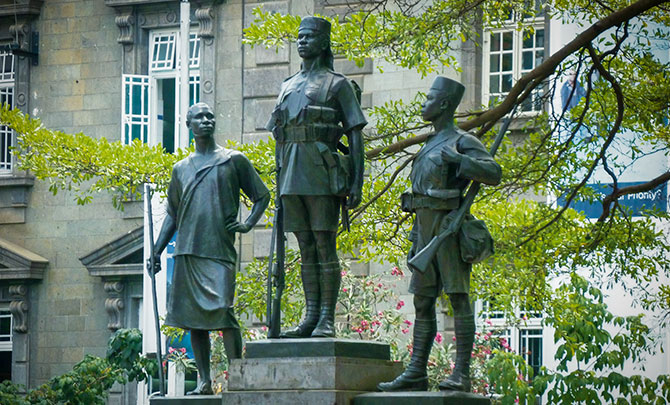We will remember them - Reform Magazine
Anne Samson, who took part in the recent review into war graves, considers the importance of our final resting places
Dealing with the dead is part of my job as an historian of the First World War in Africa –remembering the dead and recording their story. Family and friends are used to me going ‘grave searching’ (locating where someone is buried, often in an overgrown cemetery) and talking about my ‘dead men’. They are ‘my boys’ (including the few women), many of whom died more than 100 years ago in Africa, as part of the 1914–18 war.
For many, this past year has been one of mourning from a distance – not too dissimilar to what those 100 years ago experienced for different reasons. While families of men who died in the war in Europe invariably heard within a short time that their loved one was dead, wounded or missing in action, this was not the case for the men who served in Africa. Letters took six months or more to get to their destination; the exigencies of war meant battlefield information did not always get to administrative centres to be telegraphed to London and onto family; and, if one was a local black, Arab, coloured (South African mixed race) or Indian soldier, it was only when a friend or unit returned home, sometimes after two or three years, that the family was given any news.
Following the 2019 Channel 4 documentary Unremembered, in which David Lammy discovered how more than 100,000 Africans who died in the war were denied individual graves, I was invited to sit on a committee set up by the Commonwealth War Graves Commission (CWGC). Between March 2020 and February 2021, we debated remembrance and commemoration of those who died during both world wars.
While considering the documents of those making decisions about how to treat the war dead 100 years ago, I had various experiences which influenced my own thinking. I took part in four real-time broadcast services in the UK, and in a broadcast thanksgiving service, delayed by two days, for Mom 2 (my mother-in-law) in South Africa. I attended an in-person, socially distanced funeral. I reclaimed the grave of a First World War army officer who died in 1932 in Kenya, which had fallen into disrepair after the family left, and which was about to be reused for another burial. With the help of a special CWGC team, that grave has been protected and a slab put in place ready for a bovine-friendly headstone (low-lying so that cows can’t scratch up against it and knock it over)…
Anne Samson is a publisher and historian. Her most recent book, Kitchener: The man not the myth, was published by Helion in 2020. The report of the Special Committee to Review Historical Inequalities of Commemoration is available at www.cwgc.org/non-commission-report
___
This is an extract from an article published in the July/August 2021 edition of Reform















Submit a Comment